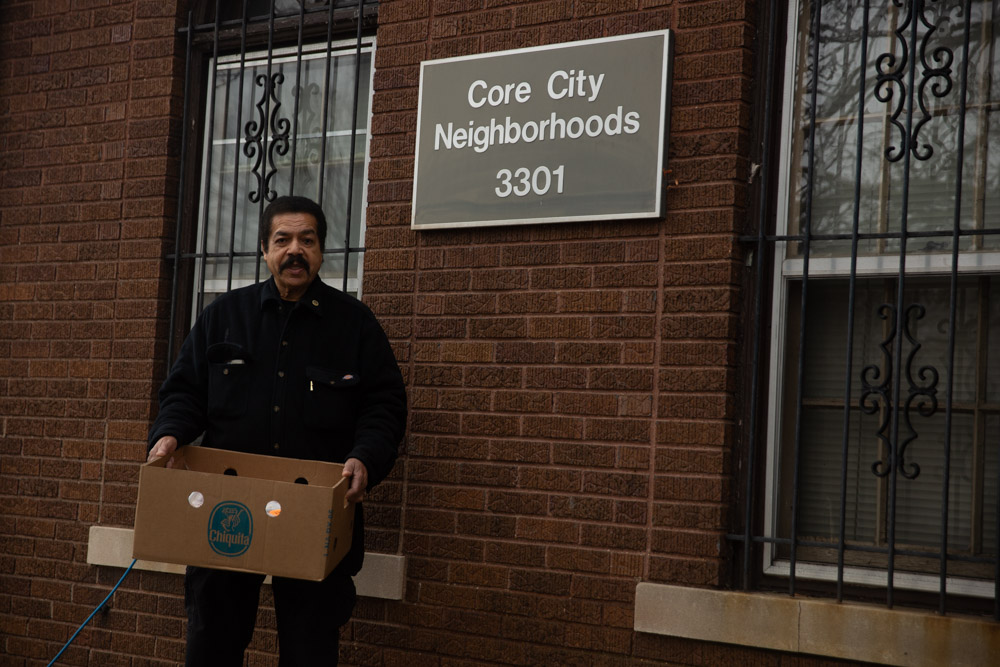
Core City Neighborhoods, Inc. is the epitome of a grassroots organization. It is staffed by three committed activists, supported by community volunteers who grew up receiving assistance, and led by a board of directors composed of local residents.
Core City provides permanent housing, consistent food assistance, summer youth programs and cleans unattended lots to create gardens and parks in the community.
“We’re a development of the community, by the community, for the community,” says Executive Director Willie Cambell. “If something needs to be repaired or painted, we roll up our sleeves and get it done.”
The City of Detroit operated website Neighborhoods.org identifies the major thoroughfares of the 4-square mile Core City neighborhood: “Warren Avenue, Grand River Avenue, Martin Luther King Boulevard and Michigan Avenue.”
The nonprofit was founded in 1984 by a group that included its former executive director, the late Catholic Sister Theresa Blaquiere, and Bishop Thomas Gumbleton. It’s housed in the former St. Casmir Church convent on 23rdStreet, a mile from the Michigan Central Train Depot.
Dennis Talbert was president of Michigan Neighborhood Partnership, a division of the University of Michigan, which rented space in the CCN building. “Core City works diligently to keep the peoples’ voice at the table,” Talbert said, adding that they are “committed to developing indigenous leadership.”
Core City quantifies its success story with facts and stats.
***It started off refurbishing houses, and by the early 2000s the organization was building new housing in cooperation with the Michigan State Housing Development Authority.
***It now owns and manages 400 apartments– 1, 2 and 3-bedroom rental units, as well as 60 single-family homes.
*** The low turnover rates and waiting lists for developments like Alberta King Village are indicators that Core City is meeting the community’s needs.=
Cambell says the key to attracting and retaining tenants in a community housing development is setting rental rates at 30 percent of Wayne County’s median income level, not the standard 60 percent that other developers use.
The organization also partnered with Habitat for Humanity to build 131 homes, more than 90 percent of which are still owned by the families that helped them.
An Air Force veteran with a social service background who says he’s driven by the Holy Spirit, Cambell is a fiercely independent doer who sees serving others as a matter of fact, no-frills calling.
On Tuesdays and Wednesdays, in partnership with Forgotten Harvest, he and a few volunteers distribute food boxes to some 200 people.
To maintain its independence,Cambell says Core City neither seeks nor receives funding from corporations, nearby casinos, or major foundations. Instead, its funds come from their income-producing housing and from non-traditional sources and private donors. He says he doesn’t operate on a set budget but “the pantry is always full because I walk by faith.”


